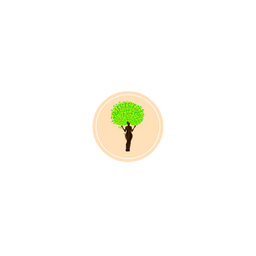African holistic health practices have a rich history and continue to play an essential role in the well-being of individuals across the continent. From herbal remedies to spiritual rituals, the diverse cultures and traditions of Africa offer a wealth of knowledge for those interested in pursuing a holistic approach to health. In this article, we will explore some of the fascinating holistic health practices found in different regions of Africa.
North Africa: Traditional Medicine in Egypt and Morocco
North Africa is home to ancient civilizations with a long-standing tradition of holistic health practices. In Egypt, traditional medicine has been practiced for thousands of years and is deeply rooted in the belief of maintaining a balance between mind, body, and spirit. Treatments often include herbal medicine, acupuncture, and massage therapy.
In Morocco, holistic healing is closely tied to the practice of Islam and often involves ritualistic healing ceremonies. Traditional healers, known as "hakims," still play a significant role in the healthcare system and offer a blend of herbal remedies, spiritual healing, and physical therapies.
West Africa: The Power of Herbal Remedies
In West Africa, herbal medicine is a widespread and integral part of holistic health practices. Traditional healers, known as "herbalists" or "bimbayas," possess extensive knowledge of indigenous plants and their medicinal properties.
Many indigenous remedies have been passed down through generations and are used for various ailments, including digestive disorders, skin conditions, and respiratory ailments. In countries like Nigeria and Ghana, traditional herbal medicine is still widely used alongside modern medical practices.
Central Africa: The Role of Spirituality in Healing
In Central Africa, traditional healing practices often revolve around the belief that illness is caused by spiritual imbalances. Spiritual healers, known as "ngangas" or "griots," use their knowledge of herbs, rituals, and divination to restore harmony and well-being.
Various traditional religious practices, such as Vodou and Bwiti, incorporate holistic healing methods. These practices emphasize the importance of connecting with ancestral spirits and using natural elements to cleanse and heal the body, mind, and soul.
East Africa: Ancient Wisdom Meets Modern Healthcare
East Africa is a melting pot of cultures and traditions, and the holistic health practices in this region reflect this diversity. Traditional healing practices, such as Ayurveda, have influenced many countries in East Africa, including Tanzania and Kenya.
The Maasai people of Kenya and Tanzania have a long-standing tradition of using medicinal plants to treat various ailments. Moreover, traditional healers in this region often work hand-in-hand with modern healthcare professionals, combining the wisdom of ancient practices with scientific advancements.
Southern Africa: The Healing Power of Indigenous Plants
Southern Africa is known for its vast biodiversity, and many indigenous plants have powerful healing properties. Traditional healers in countries like South Africa and Zimbabwe use their knowledge of these plants to treat a wide range of conditions.
For example, the San people of Southern Africa have used the Hoodia plant for centuries to suppress appetite during long hunts. Today, the plant is gaining attention globally as a potential weight loss aid.
Exploring African Holistic Health Practices Today
African holistic health practices continue to be relevant and influential in contemporary society. As interest in natural remedies and traditional healing methods grows worldwide, more individuals are turning to Africa for inspiration.
It is essential, however, to approach these practices with respect and cultural sensitivity. Seek out qualified practitioners and educate yourself about the specific practices and traditions you wish to explore.
Embracing a Holistic Approach to Health
Exploring African holistic health practices can provide valuable insights into the interconnectedness of mind, body, and spirit. By embracing a holistic approach to health, we can better understand the importance of self-care and self-awareness.
Whether you incorporate herbal remedies, spiritual rituals, or other holistic practices into your daily routine, the wisdom of African traditions offers a wealth of resources to support your well-being journey.
Remember, always consult with healthcare professionals before making significant changes to your healthcare regimen, and honor the diverse cultural practices that have shaped our understanding of health and healing.


